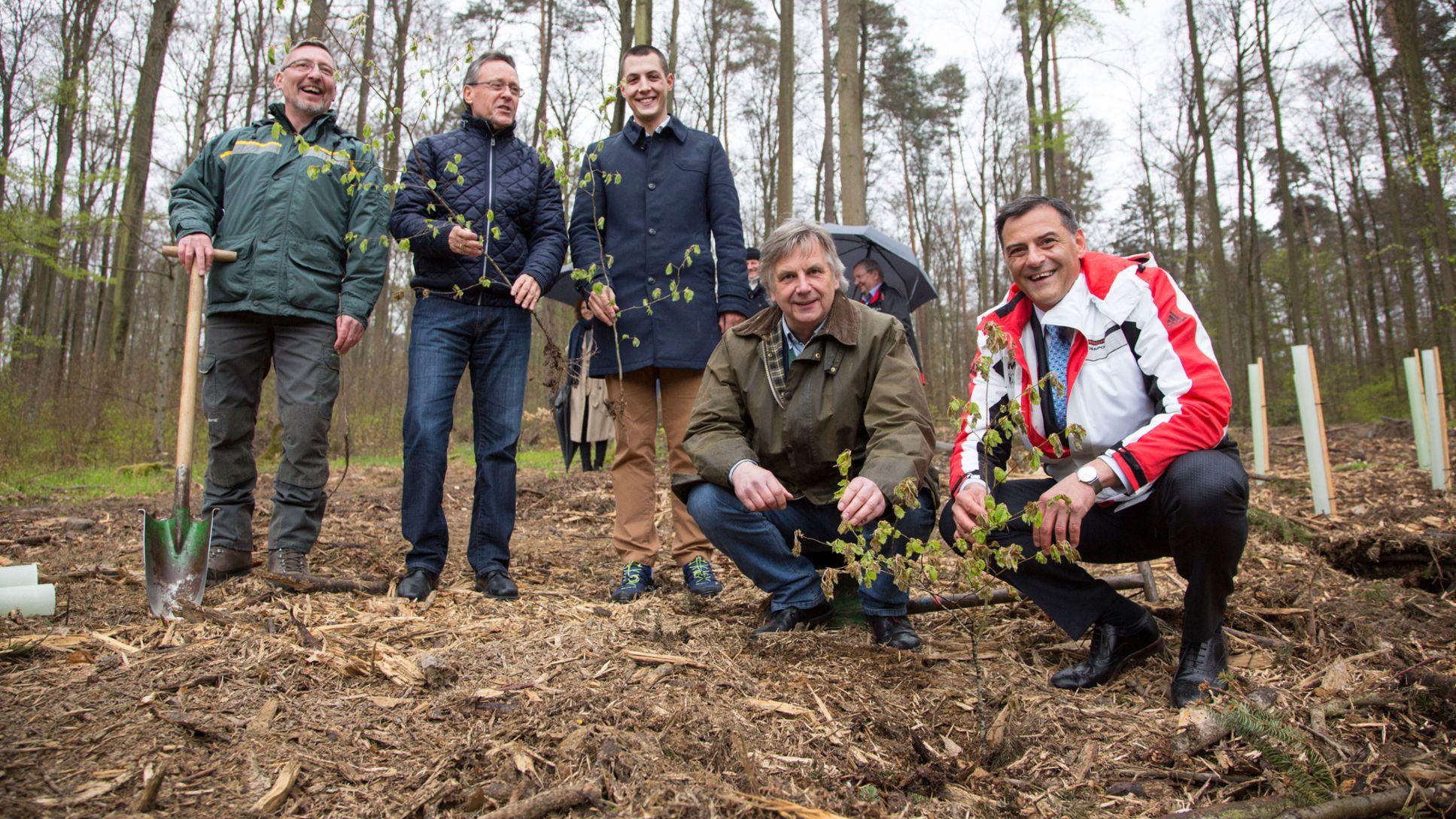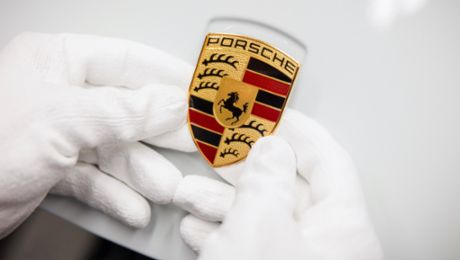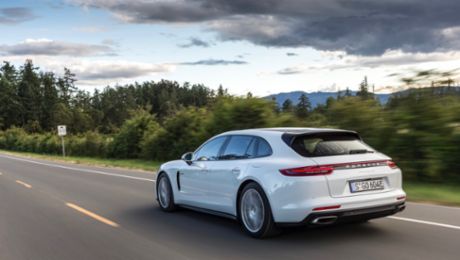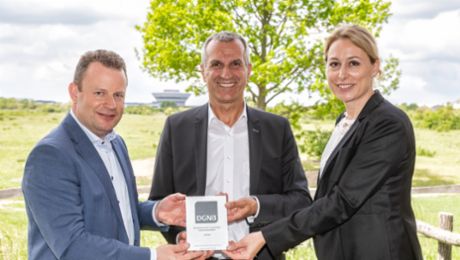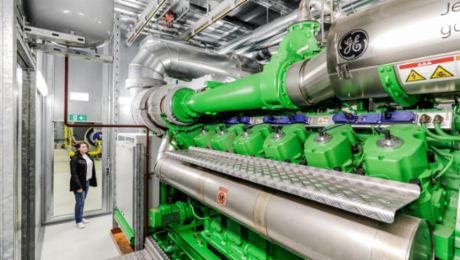The brains behind this unusual planting campaign on the boundary between Rutesheim and Weissach is the non-profit association Trinkwasserwald e.V. One major benefit of deciduous woodland of this kind is that it generates an average of 800,000 litres more groundwater per hectare than forests composed only of coniferous trees – and does so from year to year and from generation to generation.
“The approach taken by Trinkwasserwald is fascinating, because it is as simple as it is effective”, says Michael Steiner, Member of the Executive Board for Research and Development at Porsche AG. The 1.5 hectares of “drinking water forest” will produce 1.2 million litres of clean drinking water each year. Considering that one person consumes 1,000 litres of drinking water a year, the planting of these young trees will ensure a lifetime supply of drinking water for up to 1,200 people. According to Michael Steiner: “By having the drinking water forest in the immediate vicinity of our Development Centre, we are able to emphasise the commitment we have made to take responsibility for people, the environment and society”. For Heiner Rupsch, President of Trinkwasserwald e.V., the partnership with Porsche is “a practical example of sustainability and illustrates that we can only make the world a better place by working together”.
Porsche supports many projects in the area of sustainability
The drinking water forest is just one of the many projects that support Porsche’s claim to set the benchmark in the area of sustainability. In January, the sports car manufacturer converted its production sites in Zuffenhausen and Leipzig to run solely on green energy. The aim is for production to be CO2-neutral. In sales too, Porsche is breaking new ground to minimise CO2 emissions. For example, the power requirements of the new Porsche Centre in Berlin-Adlershof will be met in full by the photovoltaic pylon erected by Porsche – the very first in the world. A connected charging station also enables electric vehicles to re-charge using solar energy.
Back in 2016, Porsche worked alongside the city of Stuttgart to develop a mobility concept for its employees. The aim of the concept is to reduce the amount of traffic and the level of dust pollution. Porsche is therefore encouraging its employees to use buses, trains or car pooling when travelling to work or on business. During a dust pollution warning, employees can use local public transport free of charge. Porsche earlier set up an independent, high-level sustainability advisory committee. The committee is composed of five internationally-renowned scientists who input new ideas, identify key topics and in so doing support the sustainable development of the company.
